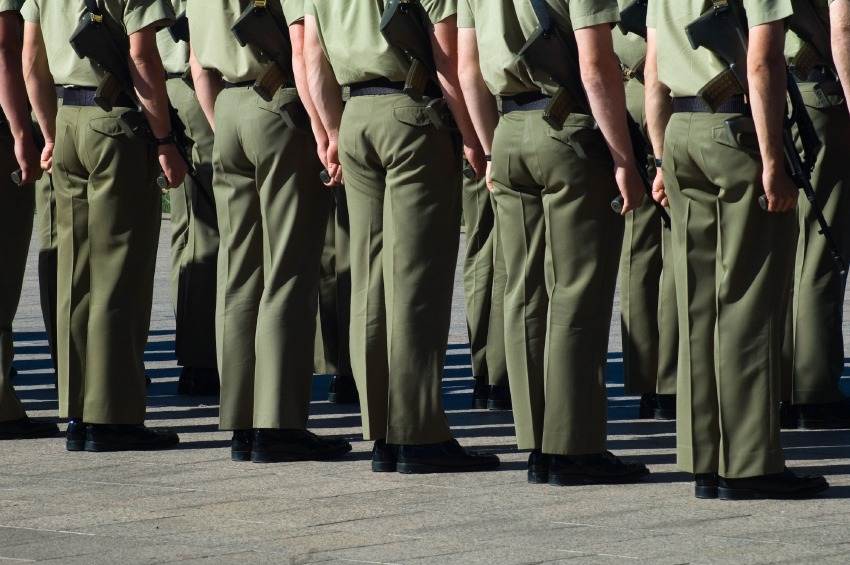IT WOULDN’T be an Anzac Day without some controversy in the lead-up. This year, in addition to the usual debates about militarism and myth-making, there has been the question of multiculturalism.
The trigger was a report commissioned by the Department of Veterans’ Affairs, conducted in 2010 but which only now has attracted public attention. It warned that commemorating the centenary of Anzac Day in 2015 is a ”double-edged sword” in a multicultural society, involving ”a potential area of divisiveness”.
Last month, media reports about this generated the predictable frenzy. Everywhere, public sentiment seemed the same. Multiculturalism was political correctness gone mad. If there was anything offensive, it was the idea that Australians of immigrant background were offended by Anzac Day, and wanted to change the way it was commemorated.
Yet who exactly has been saying that it should? Where are these offended ethnics who hate Anzac Day? Funny, isn’t it, that the evidence seems so scant.
In fact, look closely at what that government-commissioned research by the Colmar Brunton group actually said. If you do, you’ll find the authors noted that issues such as multiculturalism weren’t ”definitive problems”. They also conceded ”the community does not know what recently arrived Australians think about the whole idea [of Anzac commemoration]”.
I suspect the answer can be found simply by looking. Last week, when I went to the Shrine of Remembrance, I came across a group of school cadets from Melbourne High rehearsing for an Anzac ceremony – the group included students from Chinese, Vietnamese, Indian and Sri Lankan backgrounds. At Wednesday’s dawn services across the country and in places such as Gallipoli, you can expect to see Australia’s diversity represented in the faces in the crowds. Here in Melbourne, contingents from the Turkish, Hellenic and Vietnamese sub-branches of the RSL will participate in the Anzac Day march, as they have done for many years.
If there is an issue with Anzac Day and multiculturalism, it isn’t about offending minorities. No cultural community would object to honouring one’s history and tradition. But it is important to consider whether Anzac Day resonates with all Australians. This is a somewhat different question from whether it is divisive.
As a first-generation Australian who was born overseas, bearing Chinese and Lao heritage, I once struggled to see how Anzac Day could have meaning for me. During my teenage years I found myself at a loss when others at school spoke about the sacrifice made by ”our forebears” in defending ”an Australian way of life”.
This wasn’t something to which I could relate. I didn’t have a grandfather or great-grandfather who served at Gallipoli or on the Western Front. I knew enough to know that the Australia that Diggers fought to defend was one that would have excluded my forebears under the White Australia policy.
In time, I came to accept the Anzac legend as integral to an Australian story, as a touchstone of mateship. Truth is, when you adopt a national identity you inherit a tradition, with all the benefits and responsibilities that come with it. And one of those responsibilities is to remember.
It is important, though, that we remember the right way. Our patriotism should be expressed with humility and in a liberal voice. It shouldn’t be jingoistic. It certainly shouldn’t be about celebrating war and military prowess.
There’s a difference, after all, between celebrating and commemorating. On Anzac Day we should primarily be doing the latter: remembering the contributions of past citizens, soberly and solemnly. For those with forebears who served for this country, this will be personal and profound. But for all of us, April 25 should prompt a reflection on the sacrifices that citizenship may demand of us in extremis.
As the Anzac centenary approaches, however, we could do with a more challenging national conversation. Not least one about what Anzac says about a contemporary, culturally diverse Australia.
Perhaps some of the answers are already there in the Anzac tradition itself. There are, for instance, unlikely dashes of pluralism. I might have had a different response to Anzac as a teenager had I been aware of the contributions of Anglo-Chinese Diggers such as Billy Sing or Jack Wong Sue.
I raise these examples because it wouldn’t surprise me to find many children of newly arrived immigrant communities asking themselves this week about what Anzac must mean for them. They’d be asking those questions not because they find Anzac Day offensive or because their parents do, but because they wonder how they could be included in it.
Let’s not forget that national days are only as powerful as what they say about nations themselves.

